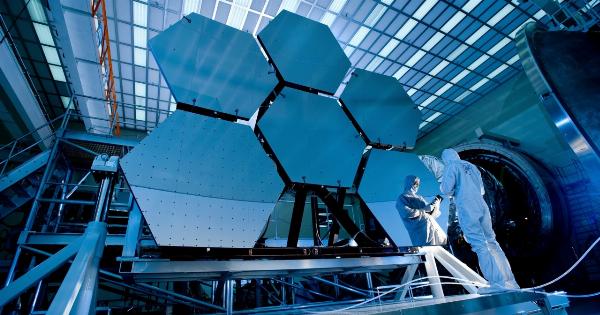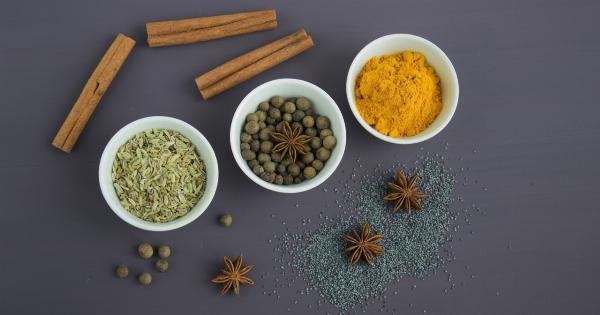When it comes to building lean muscle, there’s no denying the importance of protein. Protein is the building block of muscle tissue and plays a crucial role in muscle repair and growth.
Whether you’re an avid gym-goer or just starting your fitness journey, understanding the power of protein can take your results to the next level.
The Importance of Protein in Muscle Building
Protein is made up of amino acids, which are the essential components for muscle growth. When we exercise, our muscles undergo microscopic damage. Protein helps repair this damage, building stronger and larger muscles in the process.
Consuming an adequate amount of protein is essential for optimal muscle recovery and growth.
Protein Quality: Complete vs. Incomplete Proteins
Not all proteins are created equal. Complete proteins contain all nine essential amino acids that our bodies cannot produce on their own. Animal-based protein sources such as meat, poultry, fish, eggs, and dairy products are considered complete proteins.
On the other hand, plant-based protein sources, such as legumes, grains, and vegetables, are often incomplete proteins because they lack certain essential amino acids.
While individuals following a vegetarian or vegan diet can still fulfill their protein requirements by combining various plant-based protein sources to create a complete amino acid profile, it’s important to ensure adequate intake for optimal muscle building.
Daily Protein Requirements
The amount of protein you need to consume daily to build lean muscle depends on various factors, including your weight, activity level, and overall goals.
As a general guideline, it is recommended to consume 0.7-1 gram of protein per pound of body weight for muscle building purposes.
For example, if you weigh 150 pounds, you should aim to consume between 105-150 grams of protein per day. However, it’s worth noting that highly active individuals or those engaging in intense exercise may benefit from higher protein intake.
Timing Your Protein Intake
Not only is the amount of protein essential, but the timing of your protein intake can also significantly impact muscle building results.
The period immediately after exercising, known as the “anabolic window,” is a crucial time for muscle repair and growth. Consuming a protein-rich snack or meal within 30 minutes to an hour after your workout can optimize muscle protein synthesis.
Furthermore, spreading your protein intake evenly throughout the day can enhance muscle protein synthesis and prevent muscle breakdown. Aim to consume protein-rich foods or supplements in each meal and snack to maximize your muscle-building potential.
Choosing the Right Protein Sources
When it comes to protein sources, variety is key. Different protein sources offer different amino acid profiles and additional nutrients that support overall health.
While animal-based proteins are a popular choice due to their complete amino acid profile, it’s essential to include plant-based proteins for their fiber, vitamins, minerals, and antioxidants.
Here are some excellent protein sources to consider:.
1. Lean Meats
Lean meats like chicken breast, turkey, and lean beef are rich in high-quality protein. They also contain essential nutrients such as iron and zinc, which support muscle function and recovery.
2. Fish
Fatty fish, such as salmon, trout, and sardines, are not only packed with protein but also provide omega-3 fatty acids, known for their anti-inflammatory properties and potential role in muscle recovery.
3. Eggs
Eggs are a nutritional powerhouse, offering one of the highest protein-to-calorie ratios. They also contain essential vitamins and minerals, including vitamin B12, which plays a crucial role in red blood cell production and energy metabolism.
4. Greek Yogurt
Greek yogurt is a fantastic source of protein, calcium, and probiotics. It is lower in sugar than regular yogurt and can be an excellent post-workout snack or a base for protein-packed smoothies.
5. Plant-Based Proteins
If you follow a vegetarian or vegan diet, there are many plant-based protein sources to choose from.
Legumes (such as lentils, chickpeas, and black beans), tofu, tempeh, edamame, quinoa, and hemp seeds are excellent options that provide protein, fiber, and other essential nutrients.
Supplementing with Protein Powders
In addition to whole food sources, protein powders can be a convenient and efficient way to meet your daily protein needs.
Whey protein powder is derived from milk and offers a complete amino acid profile, making it an excellent choice for muscle building. For those with lactose intolerance or following a plant-based diet, there are also numerous protein powder options available, such as pea protein, hemp protein, or brown rice protein.
When choosing a protein powder, it’s important to consider factors like quality, purity, and taste. Opt for a trusted brand that undergoes third-party testing to ensure safety and efficacy.
Protein and Exercise Performance
Protein not only aids in muscle repair and growth but also plays a role in improving exercise performance. Protein consumption before and after workouts can enhance recovery and reduce muscle soreness, allowing you to train harder and more frequently.
Additionally, protein consumption may support strength gains and improve body composition.
A study published in the Journal of the International Society of Sports Nutrition found that those who consumed higher amounts of protein during resistance training experienced greater increases in muscle mass and strength than those with lower protein intake.
Conclusion
Protein is undeniably the key to building lean muscle.
Whether you choose animal-based or plant-based proteins, meeting your daily protein requirements through a varied and balanced diet is essential for muscle repair, growth, and overall fitness performance.
Don’t forget to time your protein intake strategically, particularly in the post-workout “anabolic window.” With the right protein sources and proper timing, you’ll optimize your muscle-building potential and achieve your fitness goals.






























